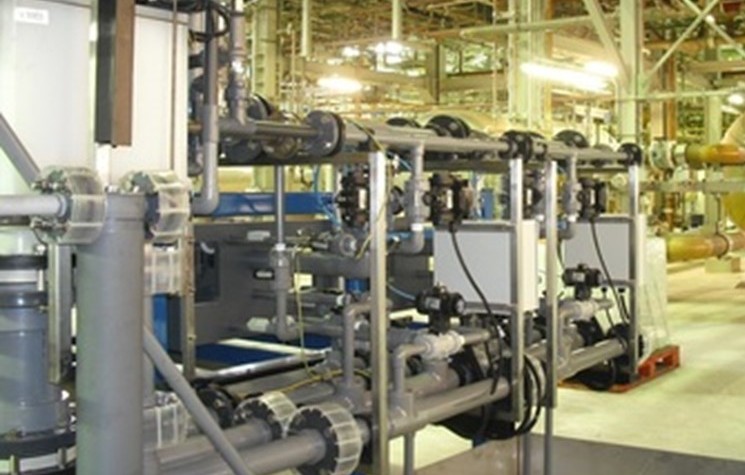AFC Energy passes key milestone as it readies for commercialisation

By Amy McLellan
A positive start to the year for fuel cell company AFC Energy, which has successfully trialled its first 51 cell stack cartridge in Germany. It took just four hours for the stack to reach fuel cell operating temperature from ambient, against a target of less than 12 hours, a key indicator of performance.
Importantly, this two week trial focused on scaling-up the fuel cell stack from 25 to 51 fuel cells without requiring extra heat management strategies, such as additional coolant circuits. The liquid electrolyte in its alkaline fuel cells means AFC’s system can use the liquid not only for ionic transport but also for heat management, which simplifies design and cost. And the company’s self-heating strategy has now shortened to just four hours.
This is important because as we reported in December the EU-backed €6 million POWER-UP programme, which will demonstrate the world’s largest alkaline fuel cell system in Germany, has been accelerated, with the company put on a fast-track execution timetable for delivery of a 240k KORE fuel cell system in H2 2015. This will be a commercial scale trial using a 101 fuel cell cartridge, which means that Cranleigh-based AFC is now at the half way point.
AFC chief executive Adam Bond said the trial result was “a massive step forward in the commercialisation” of the technology. “We are continuing to assess the results of this trial and incorporate the learnings into the next phase of the 101 cell stack scheduled for February – March,” he said and confirmed that the company is on track to deliver the 240kW KORE system by the end of 2015.
This is an important project because it’s an opportunity for the company to showcase the ability of KORE to achieve technical performance parameters in an operational commercial-scale facility. First power generation is expected in July 2015 and the commercial fuel cell demonstration of the KORE at its full design specification is expected in December 2015, 18 months ahead of schedule.
This is an exciting time for the £26 million market cap company, which was founded in 2006 and is now ready for the tricky transition from R&D to commercial operations. In the near-term, the most promising market is Korea, where there’s state backing for new energy technologies and an abundance of hydrogen and syngas that is a by-product of its large chemicals industry. Significantly, AFC Energy has already established a foothold in this promising market, last year signing two MoUs for future projects. The US is another key market, where there’s support for emerging hydrogen-based energy technologies.
AFC Energy is currently funded as a result of a capital raise in October but it is keen to partner with other companies to find ways to accelerate the commercial deployment of its technology; getting the right partners on board is a key priority for new CEO Bond in what promises to be an interesting year for the AIM-quoted company.
[ends]
Comments (0)